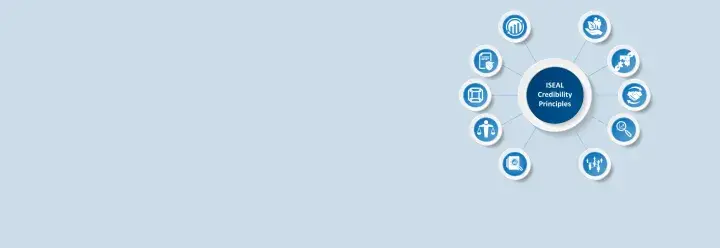Building trust and transparency in supply chains
As the world’s sustainability challenges intensify, the demands placed on business have never been greater – from developing science-based net-zero strategies, to aligning with the UN Sustainable Development Goals, to disclosing their risks, impacts and dependencies on nature.
This is driven both by consumer demand for sustainable products and by new regulations, as well as the demands of other businesses, finance institutions and shareholders. And it extends beyond a company’s immediate operations to cover whole supply chains.
Under the European Union’s new anti-deforestation law, for example, companies will need to be able to trace the forest-risk commodities they sell in the EU back to the plot of land where they were produced. The proposed Directive on Corporate Sustainability Due Diligence is even more comprehensive, requiring large companies incorporated or operating in the EU to identify, prevent and mitigate any adverse impacts on human rights and the environment along their supply chains.
Sustainability standards and similar systems can help businesses to navigate this challenging terrain. Research commissioned by ISEAL has shown that sustainability systems provide multiple business benefits – from risk management and monitoring, to market access, to increased revenue and reputational benefits. On the other side of the coin, sustainability systems can support governments in implementing sustainability policies and legislation.
But with so many labels, standards and other sustainability systems on the market, how can businesses and governments identify those that will be reliable, trustworthy and effective partners?
Credibility principles and practice
The ISEAL Credibility Principles define the core values of credible and effective sustainability systems – from multistakeholder engagement and measurable progress to transparency and truthfulness. The principles help organisations developing standards and other sustainability tools to understand which attributes are critical to the credibility of their approach, and why this matters for improving sustainability performance and delivering impacts. They also help businesses, governments and civil society to identify systems that can be effective partners in delivering against shared sustainability objectives.
To help put these principles into practice, we are developing a Code of Good Practice to provide a global reference for credible, effective sustainability systems. We’re updating and integrating our existing Codes of Good Practice on Assurance, Impacts and Standard-Setting into a single Code that takes a more holistic view of sustainability. The draft Code has an expanded scope to apply to a wider range of sustainability systems, beyond voluntary third-party standards.
This draft Code also introduces requirements to cover emerging areas of good practice. One of these is due diligence – an increasingly important concern in the light of new legislation in the EU and elsewhere. While sustainability systems are not a substitute for corporate due diligence, the Code of Good Practice ensures they can define their role in supporting corporate due diligence, and that they have the mechanisms in place to be able to deliver this role effectively.
Another new area included in the Code is good practice in claims management. Systems that follow the Code enable businesses to communicate about their sustainability initiatives and impacts in a transparent, trustworthy way, while avoiding greenwash and misleading claims. As well as helping build trust among consumers, sustainability claims are coming under increasing legislative scrutiny. The EU, for example, has launched an initiative on substantiating green claims and is proposing a Directive on empowering consumers to make informed, environment-friendly choices.
A consultation on the second draft of the Code of Good Practice is now under way. You can complete a survey on our Code consultation page. There’s also a wealth of background material, including webinars outlining the content of the draft Code.
We hope you’ll join us in helping to shape effective solutions to the world’s most pressing sustainability challenges.
The Code consultation runs until July 30. Find out how you can get involved.


